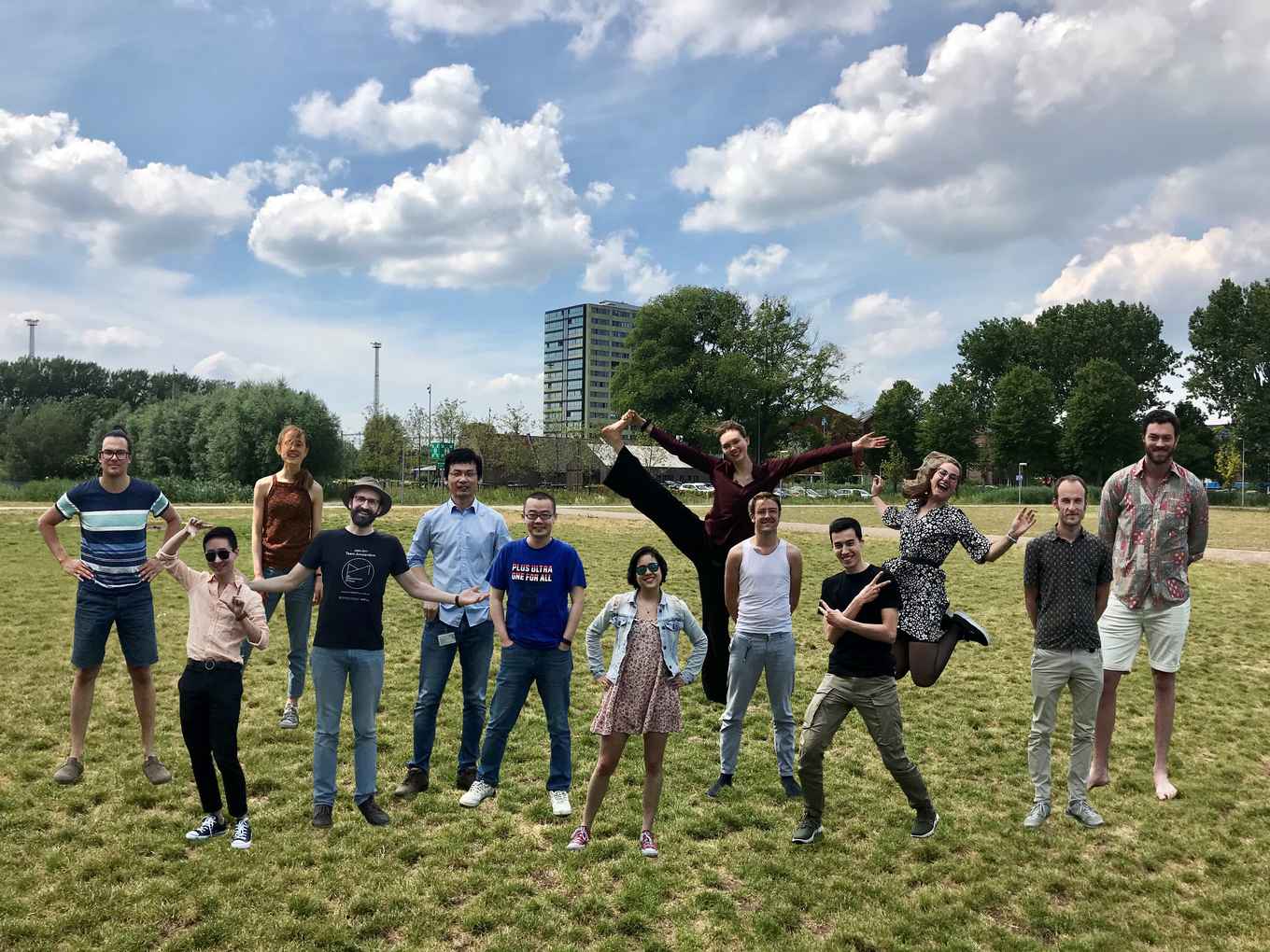Introducing the 2020 Amsterdam iGEM team
22 June 2020

Microorganisms play an important role in biotechnology. However, a recurring problem is to sustain their traits, often developed on a small scale in a lab, in an industrial environment. Production levels dwindle when mutated microbes that are faster-growing, but less productive, win over the original efficiently producing microbes.
The goal of the team is making biotechnological processes more stable over time. In their project, the students aim to build an algorithm to design microorganisms capable of producing valuable compounds in a stable manner by coupling product formation to microbial growth. This way, highly producing organisms will also become the fastest-growing ones, which results in long term stable product formation. Possible applications are the production of biofuels or biodegradable plastics, sometimes even consuming CO2. This could have an enormous impact on the biotech sector and could provide a new tool in combating CO2 emissions.
The team is sharing their progress on social media and by building a web page for the competition. If you want to know more and get involved, visit the team’s page at https://2020.igem.org/Team:Amsterdam, where you will find information about workshops and other activities.
The iGEM competition
IGEM is an international synthetic biology competition that is organised annually by the Massachusetts Institute of Technology (MIT). Student teams are given a starter kit to take to the laboratory to design, build, test, and measure a system using interchangeable biological parts and standard molecular biology techniques. iGEM teams work inside and outside the lab, creating projects that strive to create a positive contribution to their communities and the world. Every year nearly 6,000 people dedicate their summer to iGEM and then come together in the fall to present their work and compete at the annual Giant Jamboree.